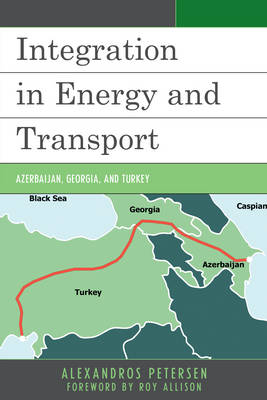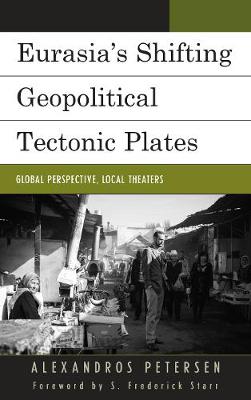Contemporary Central Asia: Societies, Politics, and Cultures
2 total works
The South Caucasus has established itself as a corridor for transporting energy from Azerbaijan to Georgia, Turkey, and on to Europe, symbolized by the Baku-Tbilisi-Ceyhan oil pipeline. This new infrastructure has created an east-west "Eurasian bridge" in which transnational extra-regional actors, especially the European Union and international financial institutions, have played a critical role. This book offers an original exploration of integration in the energy and transport sectors amongst Azerbaijan, Georgia, and Turkey, and the capacity of this to fundamentally change relations between these countries. In the period studied, from the mid-1990s to 2008, integration in energy and transport did not result in broader political, security, and sociocultural integration in any significant way. The author sets his analysis in a theoretical framework, drawing on theories of integration, but also grounds it in the detailed, empirical knowledge that is the measure of true expertise.
This anthology of articles, short studies, and interviews by Alexandros Petersen was written over the span of ten years, starting in 2004. Yet they are even more relevant today in their prescient analysis. Petersen insightfully addressed the implications of the West withdrawing its engagement from the Caucasus and Central Asia, the expansion of the Chinese influence, and Russia's strategic interests.
The collection is organized along four main topics: (1) Eurasia and a changing transatlantic world: the world politics of shifting frontiers in the post-Soviet world; (2) Energy geopolitics in the Caspian and beyond, with its crucial implications for European energy security; (3) the Black Sea world, covering the dynamics of Russia, Turkey, and the South Caucasus, including the role of NATO and frozen conflicts in the region; (4) the new silk roads: China's inroads in Central Asia, which is often overlooked in the West but will be critical for the geopolitical balance of powers.
The collection is organized along four main topics: (1) Eurasia and a changing transatlantic world: the world politics of shifting frontiers in the post-Soviet world; (2) Energy geopolitics in the Caspian and beyond, with its crucial implications for European energy security; (3) the Black Sea world, covering the dynamics of Russia, Turkey, and the South Caucasus, including the role of NATO and frozen conflicts in the region; (4) the new silk roads: China's inroads in Central Asia, which is often overlooked in the West but will be critical for the geopolitical balance of powers.

